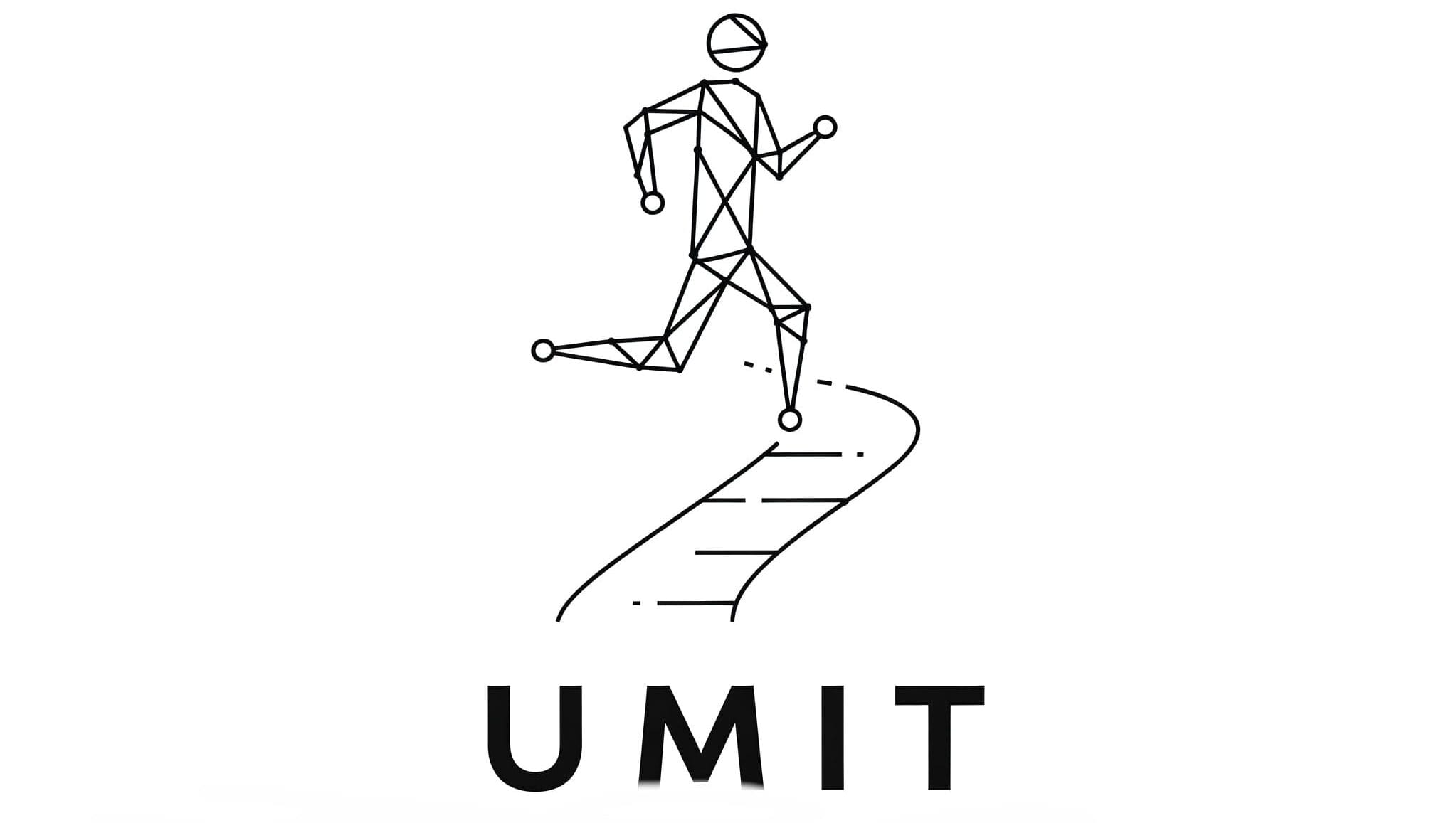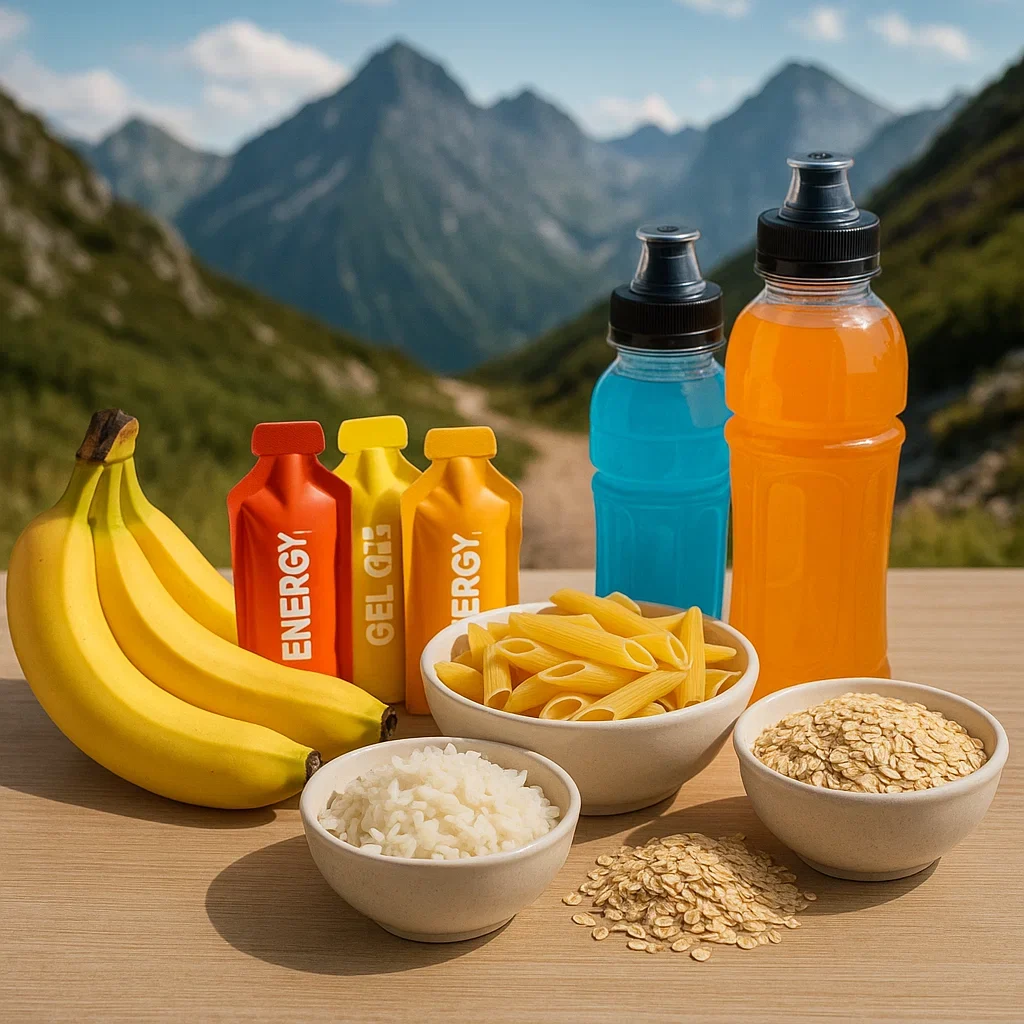🌟 Introduction: The Power of Carbohydrates in Ultramarathons
Carbohydrates have long been the go-to fuel source for endurance athletes, and for good reason. As the body’s preferred energy source, carbs provide rapid energy, making them essential for high-intensity efforts like ultramarathons. But in 2025, high-carb nutrition strategies have evolved, moving beyond the traditional “pasta party” the night before a race.
Modern ultrarunners are adopting smarter, more personalized high-carb fueling methods, including microdosing, fast-digesting carbs, and a balanced combination of complex and simple carbohydrates. This guide will explore how you can optimize your high-carb nutrition strategy to maximize your performance, avoid energy crashes, and maintain steady energy throughout your ultramarathon.
🚀 Why Carbohydrates Are Essential for Ultramarathon Performance
Carbohydrates are the body’s primary source of energy during intense exercise. When consumed, they are converted to glucose, which is stored in the muscles and liver as glycogen. During high-intensity activities, your body quickly burns through these glycogen stores to fuel your muscles.
✅ The Benefits of Carbohydrates in Ultramarathons:
- ⚡ Rapid Energy: Carbohydrates provide immediate fuel, making them ideal for fast-paced sections of your race.
- ✅ Easy Digestion: High-carb foods are typically easy to digest, especially when chosen wisely (like sports drinks and energy gels).
- 🔋 Glycogen Storage: Carb loading increases your body’s glycogen reserves, giving you a larger energy pool to draw from.
But simply eating more carbs isn’t enough. The key is to use the right types of carbs at the right times—both before and during your race.
🚀 The Science of Carbohydrates: Understanding Energy Systems
To optimize your high-carb nutrition plan, it’s important to understand how your body uses carbohydrates for energy:
- ✅ Stored as Glycogen: Carbohydrates are stored in the muscles and liver as glycogen.
- ✅ Quick Energy Release: During intense efforts, your body rapidly converts glycogen into glucose for immediate energy.
- ✅ Muscle Preservation: By providing quick energy, carbs help protect muscle tissue from being broken down for fuel.
🧬 How Much Glycogen Can You Store?
- An average runner can store around 400–500 grams of glycogen in their muscles and liver.
- This is enough to fuel approximately 90–120 minutes of high-intensity running.
- For ultramarathons, you need a plan to continually replenish these stores.
🚀 Modern High-Carb Strategies (2025)
In 2025, high-carb nutrition has advanced beyond the basic “carb loading” approach. Runners now use more sophisticated methods to optimize their energy supply:
✅ 1. Micro-Dosing Carbs
- Instead of consuming large amounts of carbs all at once, runners use small, frequent doses of fast-digesting carbs (gels, sports drinks) during the race.
- This maintains steady energy without overloading the stomach.
✅ 2. Fast-Digesting Carbohydrates
- Runners prioritize easily digestible carbs, such as:
- 🥤 Sports Drinks (Maltodextrin, glucose)
- 🍌 Bananas (Natural, easily digestible sugar)
- 🍫 Energy Gels (Quick-release energy)
✅ 3. Balanced Carb Loading
- Instead of a massive pasta dinner, runners spread their carb intake over 24–48 hours, focusing on:
- Oatmeal with honey for breakfast.
- White rice and sweet potatoes for lunch.
- Pasta with light tomato sauce for dinner.
🚀 Sample High-Carb Nutrition Plans for Ultramarathons
✅ 1-Day High-Carb Race Day Nutrition Plan
- Breakfast (3–4 hours before race): Oats with honey, a banana, and a sports drink.
- 1 Hour Before Race: A rice cake with peanut butter and a small sports drink.
- During Race: Energy gels every 45 minutes, sips of sports drink at each aid station.
✅ 3-Day Carb Loading Plan (Race Week)
| Day | Breakfast | Lunch | Dinner | Snacks |
|---|---|---|---|---|
| 3 Days Out | Oats with fruit, honey | Whole grain pasta, tomato sauce | Chicken with rice | Rice cakes, fruit, energy bars |
| 2 Days Out | Pancakes with syrup | Rice with veggies | Baked potatoes, avocado | Energy gels, sports drinks |
| 1 Day Out | Oatmeal with peanut butter | White rice, light sauce | Plain pasta, banana | Banana, rice cakes, electrolyte drink |
🚀 Pros and Cons of High-Carb Nutrition
✅ Pros:
- ⚡ Quick and easily accessible energy.
- 🚀 Suitable for high-intensity efforts and fast-paced races.
- ✅ Reduces muscle breakdown by preserving glycogen stores.
❌ Cons:
- 🚫 Risk of gastrointestinal distress if consumed in large amounts.
- 🚫 Potential for energy crashes without balanced intake.
- 🚫 May not suit runners who are sensitive to sugar.
🚀 Pro Tips for Successful High-Carb Nutrition
- ✅ Test in Training: Don’t wait until race day to test your carb sources. Try different gels, sports drinks, and solid carbs.
- ✅ Avoid Fiber Before Racing: Stick to low-fiber, easily digestible options like white rice, bananas, and sports drinks.
- ✅ Stay Hydrated: Carbohydrates require water for storage as glycogen. Keep your hydration consistent.
- ✅ Combine Simple and Complex Carbs: For longer races, use a mix of fast and slow-release carbs (sports drinks + bananas).
🌟 Final Thoughts: Adapting High-Carb Nutrition for Your Needs
High-carb nutrition is a powerful tool for ultramarathon runners, but it’s not one-size-fits-all. Your perfect strategy will depend on your training style, digestive tolerance, and race goals. Start with the methods outlined here, test them in training, and fine-tune your approach to suit your body.
Your best ultramarathon performance starts with the right fueling strategy. 🚀
📚 Further Reading
Explore more about ultramarathon nutrition strategies and best practices with the following resources:
🔗 Internal Links
-
➡️ Ultramarathon Nutrition Trends 2025
Discover the latest ultramarathon nutrition trends and innovations for 2025.
-
➡️ Mastering Ultra Marathon Fueling
Comprehensive guide to practicing fueling strategies during long training runs.
🌐 External Resources
-
➡️ How to Fuel an Ultra Endurance Race – Precision Hydration
Expert advice on preparing a fueling and nutrition plan for ultra endurance races.
-
➡️ Stop Carb Loading with Pasta: The New Rules for Triathletes and Marathon Runners
Modern approaches to carb loading, emphasizing fast-digesting carbs over traditional pasta meals.
-
➡️ Lessons on Ultramarathon Nutrition – Medium
Insights and lessons learned from ultramarathon nutrition experiences.
-
➡️ How to Carb Load for Peak Sports Performance – HIGH5
Guidelines on effective carb loading strategies for endurance athletes.
❓ Frequently Asked Questions
1️⃣ What is the best high-carb food for ultramarathon fueling?
The best high-carb foods for ultramarathons include energy gels, bananas, sports drinks, rice cakes with honey, and pasta. These options are easily digestible and provide quick energy.
2️⃣ How much carbohydrate should I consume during an ultramarathon?
It is recommended to consume 30–60 grams of carbohydrates per hour during an ultramarathon, depending on your body weight, pace, and tolerance.
3️⃣ Can I combine high-carb and fat-adaptive strategies?
Yes, this is known as a hybrid strategy. It allows you to use fats for steady energy and carbohydrates for quick bursts of power.
4️⃣ What are the signs of consuming too many carbs during a race?
Signs include stomach cramps, bloating, nausea, and energy crashes. If you experience these, reduce your carb intake or choose simpler, fast-digesting carbs.
5️⃣ Should I change my high-carb plan for hot races?
Yes, in hot races, prioritize liquid carbs (sports drinks) and reduce solid carb intake to avoid stomach issues.
6️⃣ Can I use fruits as my primary high-carb source?
Yes, but choose easily digestible options like bananas, applesauce, or dates. Avoid high-fiber fruits close to race time.
7️⃣ How can I prevent sugar crashes with a high-carb strategy?
Use a balanced approach with both simple and complex carbs, avoid sugary drinks without fiber, and maintain steady intake.
8️⃣ Can I use caffeine with my high-carb strategy?
Yes, but be cautious with dosage. Caffeine can enhance performance but may also cause stomach issues if overused.
9️⃣ Should I avoid fat completely with a high-carb plan?
Not necessarily. Small amounts of healthy fats (like peanut butter) can provide steady energy without slowing digestion.
🔟 What should I eat if I experience stomach problems during the race?
Switch to light, easily digestible carbs like rice cakes, applesauce, or diluted sports drinks.
✅ High-Carb Nutrition Quiz
Test your knowledge on high-carb nutrition strategies for ultramarathons!
1️⃣ What is the primary benefit of high-carb nutrition in ultramarathons?
- A) Steady energy from fats.
- B) Quick and easily accessible energy.
- C) Enhanced muscle recovery.
2️⃣ What is the recommended carb intake during an ultramarathon?
- A) 10–20 grams per hour.
- B) 30–60 grams per hour.
- C) 80–100 grams per hour.
3️⃣ Which of these foods is a great high-carb option for ultramarathon fueling?
- A) Avocados.
- B) Energy gels.
- C) Olive oil.
4️⃣ What should you avoid with a high-carb strategy?
- A) Fiber-rich foods before the race.
- B) Sports drinks during the race.
- C) Bananas before the race.
5️⃣ When should you start carb loading before an ultramarathon?
- A) 1 hour before the race.
- B) 12 hours before the race.
- C) 24–48 hours before the race.
🎬 Video Block
Explore these insightful videos on high-carb nutrition strategies for ultramarathon runners:
1️⃣ High Carbohydrate Intake for Ultrarunners
Aitor Virbay, a researcher in exercise physiology and metabolism, discusses the importance of high carbohydrate intake for ultrarunners.
2️⃣ How to Fuel an Ultramarathon | 10 Tips from Pro Ultrarunners
Elite ultrarunners share their top 10 tips on fueling strategies for ultramarathon events.
3️⃣ High Carb Fuelling for Ultramarathon – Paul Booth Explains
Sports nutritionist Paul Booth delves into high-carb fueling strategies tailored for ultramarathon runners.
🚀 Final Thoughts: Optimizing High-Carb Nutrition for Your Ultramarathon
High-carb nutrition is a powerful tool for ultramarathon runners, providing rapid energy, maintaining glycogen stores, and preventing muscle breakdown. But to get the most out of a high-carb strategy, it must be personalized to your needs, tested in training, and adjusted for race conditions.
✅ Remember:
- 🍌 Choose easily digestible, fast-acting carbs for quick energy.
- 🥤 Prioritize hydration, as carbohydrates require water for glycogen storage.
- 📝 Test your high-carb strategy during training, never on race day.
- ⚡ Adapt your plan for hot races (use liquid carbs) and cold races (use more solid carbs).
- 🏃 Listen to your body. If you experience GI issues, try lower-fiber or liquid options.
Whether you are aiming for a strong 50K finish or conquering a 100-mile mountain ultra, the right high-carb strategy can fuel your success. Use this guide as your foundation, but never stop experimenting and refining your approach.
Your best performance is only a meal away. 🚀

About the Author
Lost Pace is an ultramarathon runner, shoe-tester and the founder of umit.net. Based year-round in Türkiye’s rugged Kaçkar Mountains, he has logged 10,000 + km of technical trail running and completed multiple 50 K–100 K ultras.
Blending mountain grit with data, Lost analyses power (CP 300 W), HRV and nutrition to craft evidence-backed training plans. He has co-written 260 + long-form guides on footwear science, recovery and endurance nutrition, and is a regular beta-tester of AI-driven coaching tools.
When he isn’t chasing PRs or testing midsoles, you’ll find him sharing peer-reviewed research in plain English to help runners train smarter, stay healthier and finish stronger.
Ultrarunner · Data geek · Vegan athlete

